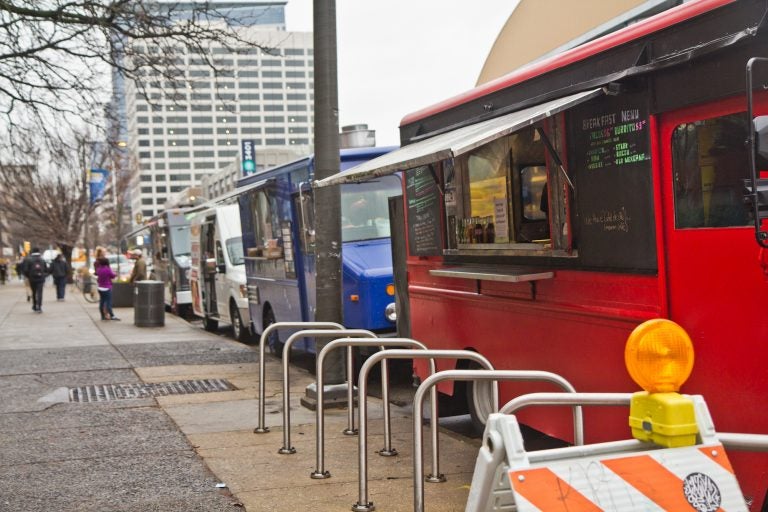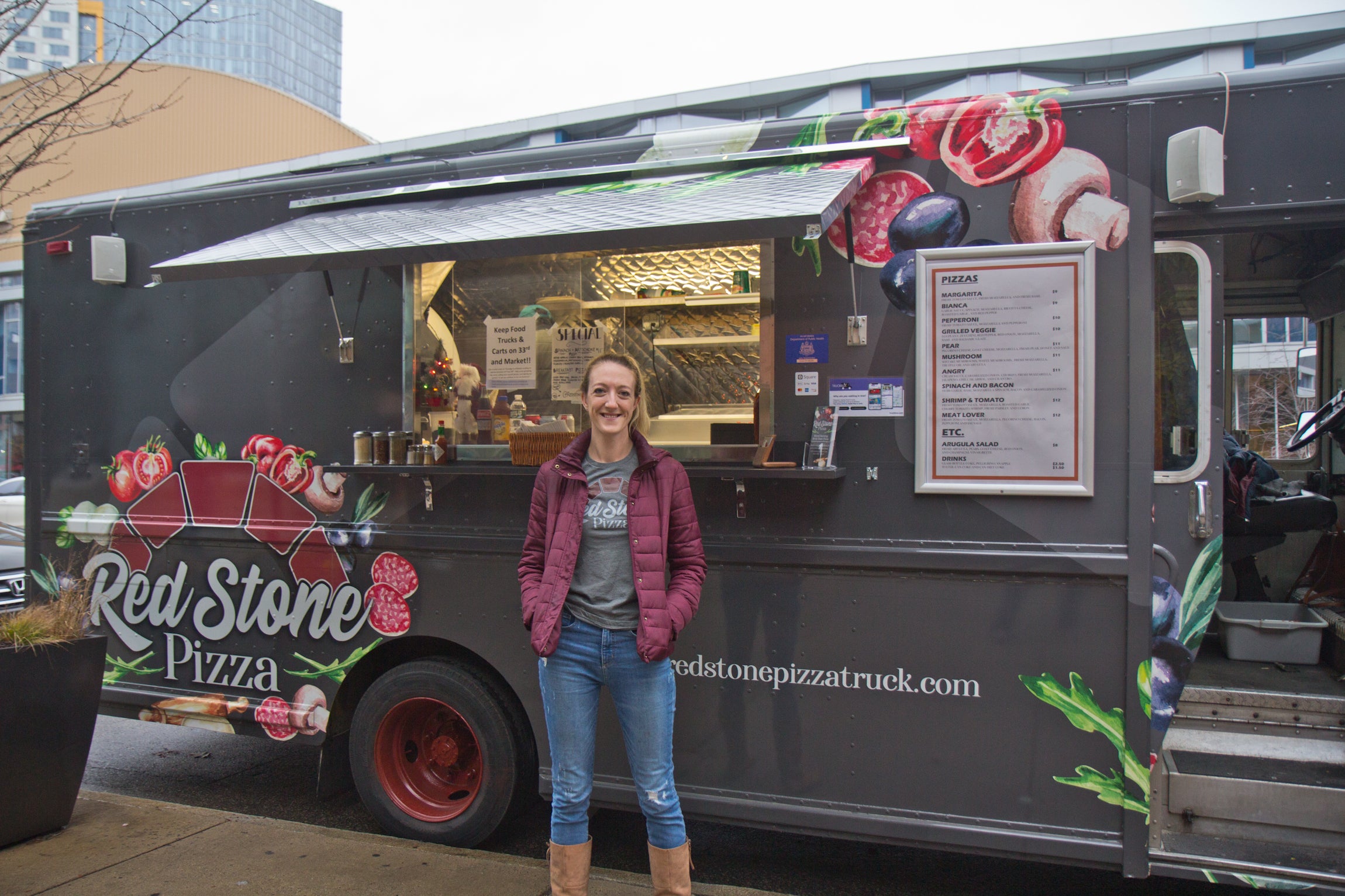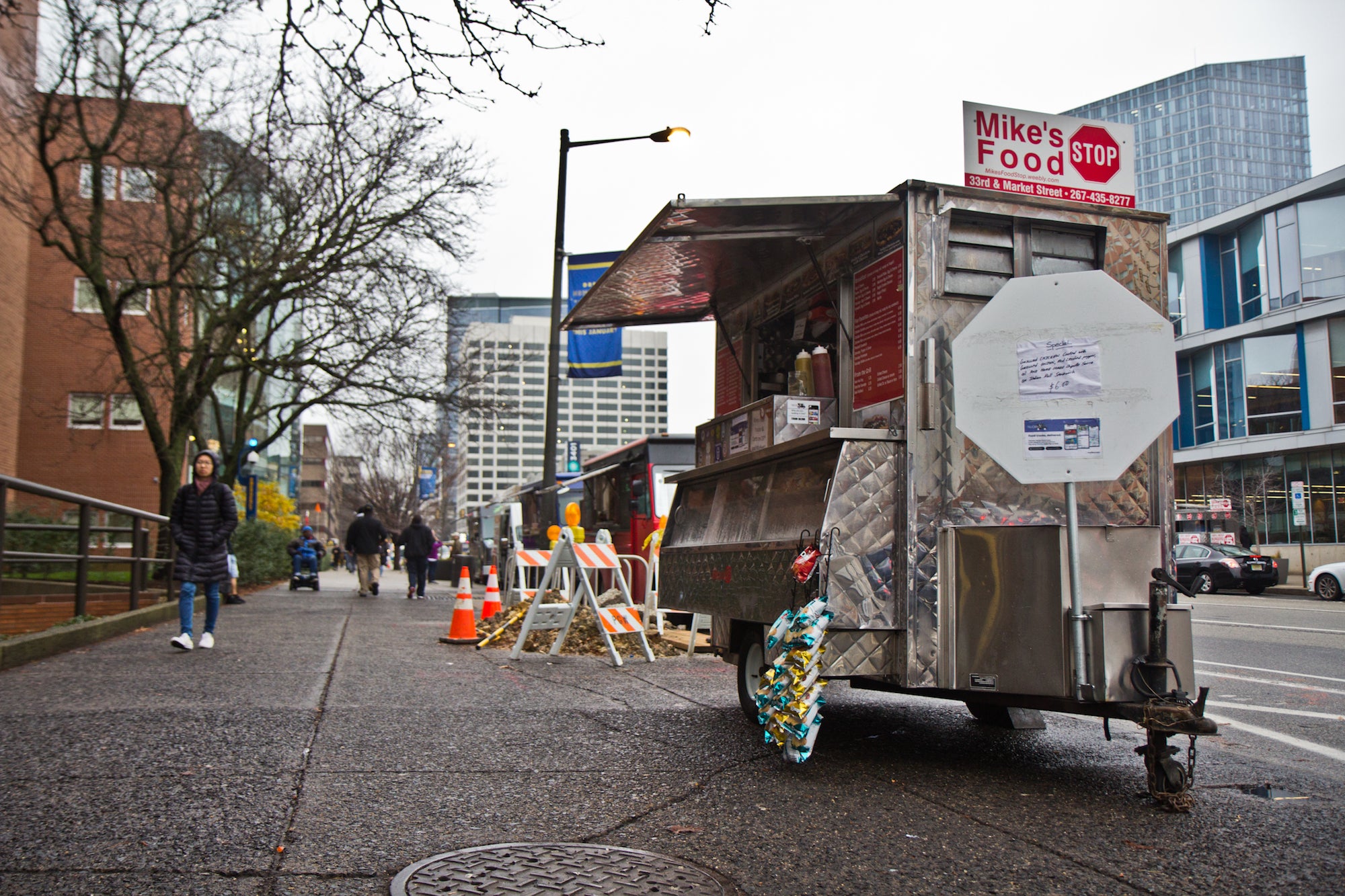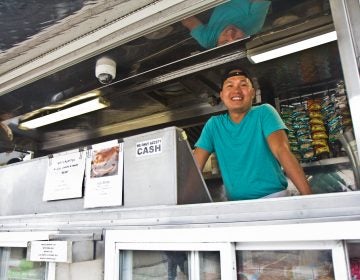Philly Council evicts food trucks from prime University City block
Food trucks would have to move under a bill requested by Drexel that would ban vendors from the block of Market Street between 33rd and 34th streets.

City Council will vote Thursday on whether to ban food trucks near Drexel University's campus. (Kimberly Paynter/WHYY)
Editor’s Note: This article was updated on Dec. 12 to reflect City Council’s vote
On a typical morning, the 3300 block of Market Street buzzes with Drexel University students rushing to class and commuters swarming a busy trolley stop.
For years, food vendors have been a part of the mix, a destination in their own right for a steady stream of hungry people on the go.
But now, Drexel wants them to move.
The relocation is imminent under a bill banning sidewalk vendors from the block of Market that spans between 33rd and 34th streets passed Thursday. Outgoing West Philadelphia Councilmember Jannie Blackwell introduced the bill at the request of the university; it passed at the last meeting of her career.
Despite the council’s culture of councilmanic prerogative, Councilmember Helen Gym voted against the bill after vendors testified that the ban would undermine their business and put their livelihood at risk. Gym questioned why Drexel couldn’t find a way to compromise with the affected businesses.
“I don’t believe in banning business models,” Gym said. “We need to find a better way to work with our small businesses. ”
Drexel said the ban is intended to “improve public safety and related traffic conditions on Market Street.” The vendors “will be able to provide vending services at other locations around Drexel’s campus,” said Niki Gianakaris, a Drexel spokesperson.
The push to move the vendors is hardly a major decision for the university, which has a growing footprint in West Philadelphia. But for the truck operators, the eviction carries large consequences, says Jessica Caldwell, owner of Red Stone Pizza and manager of Dos Hermanos Tacos trucks.
“It would really kill our business to have to move,” said Caldwell, who has parked her trucks between 34 and 35th on Market for five years. “The other locations that they are suggesting do not produce the kind of business we need to survive.”
Caldwell says other trucks occupy the viable other nearby locations Drexel has suggested, while other spots don’t have the same booming foot traffic. She says she has actively tested other locations around the university and found that sales dropped dramatically.

A petition posted Tuesday by the Philadelphia Mobile Food Association described the ban as a threat to “one of last open vending” locations in the city. Over the past few years, City Council have passed a number of new restrictions barring food vendors, many in response to requests from bigger businesses.
By the time the vote passed on Thursday, nearly 9,000 people had signed the petition in support of the vendors.
“We are just continuing to chip away at viable vending options,” said Matt Rossi, the association’s president. “You can put us in a closed-off parking lot and say there’s a spot for you, but that doesn’t mean you can actually do good business there. These people need to survive.”

It isn’t the first time City Council has considered restricting food vendors that serve Drexel. In 2015, Blackwell introduced a far more wide-ranging bill that would have heavily regulated food trucks around the school. That bill was also introduced at the request of Drexel.
But Blackwell reconsidered the legislation at the last minute. The councilmember prides herself on standing up for the little guy — she is known for nitty-gritty constituent work and for her advocacy against homelessness — and backed off of the previous vendor regulation bills when she learned how bad they would be for the small business owners.
“She had no idea [the legislation would hurt the vendors so badly],” recalled Gary Koppelman, the former head of the Philadelphia Mobile Food Association. “The school would run legislation by her and she didn’t exactly understand what was going on [with the issue].”
Koppelman has a strong relationship with Blackwell and in 2015, after he explained to her the ramifications of her bill for small business owners, the councilmember agreed to pull the legislation.
“She said ‘I‘m not going for that. I’m not going to shut down these street vendors,’” recalled Koppelman, who is now the owner of Industrial Food Truck, the largest food truck commissary in the city.
But Koppelman is no longer the head of the Mobile Food Association and Rossi does not have the same relationship with Blackwell.
Instead, she’s been talking with Kevin Horn, a long-time Drexel-area vendor. According to accounts from Caldwell and Rossi, in his advocacy for the bill, he claims to represent both the vendors and the university, although he no longer owns a truck serving the area.
Horn did not respond to a request for comment, and Drexel said they have no contractual or paid relationship with him.
“A couple people came to me this past week, but we don’t know, they are not the Drexel vendors, they are other people,” said Blackwell, when asked about opposition to the bill on Thursday. “But we work with our vendors. You know I’m a pro-vendor person.”
Koppelman agrees that Blackwell is pro-vendor, but he thinks she’s been led astray on this issue, in the hectic final weeks of her decades-long tenure.
Editor’s Note: This article was updated throughout on Dec. 12 to reflect City Council’s vote
WHYY is your source for fact-based, in-depth journalism and information. As a nonprofit organization, we rely on financial support from readers like you. Please give today.







